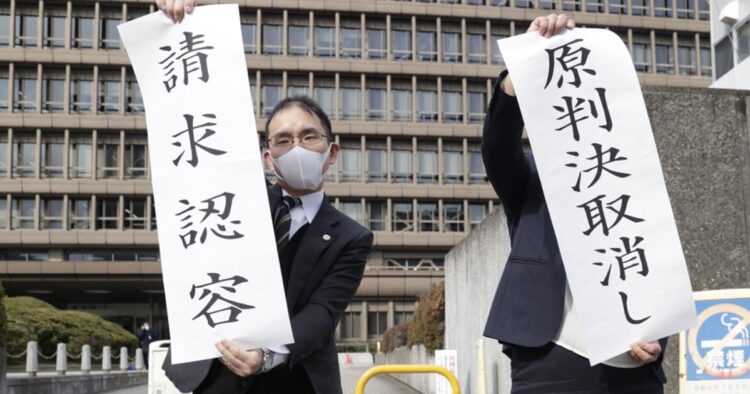Japan’s Supreme Court is set to make a significant ruling on Wednesday regarding a controversial eugenics law that led to the forced sterilisation of approximately 16,500 people. These victims have suffered for decades and are now seeking compensation and an apology. The court’s decision is expected to be announced at 3 pm local time (0600 GMT).
The eugenics law, which was in place from 1948 to 1996, allowed doctors to sterilise people with inheritable intellectual disabilities to “prevent the generation of poor quality descendants.” The government acknowledges that around 16,500 people were forcibly sterilised under this law.
In addition, another 8,500 people were sterilised with their ‘consent,’ though lawyers argue that these cases were likely “de facto forced” due to the pressure individuals faced.
A 1953 government notice even stated that physical restraint, anesthesia, and “deception” could be used for these operations. Saburo Kita, who uses a pseudonym, is one of the victims. He underwent a vasectomy at the age of 14 at a facility for troubled children. Now 81, he recalls the lifelong agony caused by the surgery. He could not bring himself to tell his wife about it until shortly before she died in 2013.
“I’ve spent an agonising 66 years because of the government surgery. I want my life back that I was robbed of,” Kita said at a news conference last year. He believes that only when the government fully acknowledges and takes responsibility for its actions will he be able to accept his life, even a little.
The number of sterilisation operations began to slow down in the 1980s and 1990s, and the law was finally scrapped in 1996.
However, the dark history of the eugenics law was brought back into the spotlight in 2018 when a woman in her 60s sued the government for a procedure she underwent at the age of 15. This case garnered attention and highlighted similar lawsuits.
In 2019, the government passed legislation to provide a lump-sum payment of 3.2 million yen (around $20,000 today) per victim and issued a wholehearted apology. However, survivors argue that this amount is insufficient compared to their lifelong suffering, leading them to continue their fight in court.
Apart from the Supreme Court ruling on Wednesday, several other cases are at different stages in lower courts. Regional courts have agreed that the eugenics law violated Japan’s constitution. However, judges have been divided on whether claims are valid beyond a 20-year statute of limitations.
Some judges believe applying such limitations is cruel and unfair, ordering the state to pay damages. Others have dismissed cases, saying the window for pursuing damages has closed.
“If the Supreme Court decides that the statute of limitations isn’t applicable at all, then basically all plaintiffs in subsequent cases, and victims who haven’t sued yet or aren’t even aware of the damage they had suffered, can benefit,” explained Naoto Sekiya, Kita’s lawyer.
Critics argue that the eugenics law laid the foundation for discriminatory attitudes against people with disabilities that persist today. “The ruling will hopefully pave the way for active steps to be taken by the government to eliminate the kind of eugenic mentality that it created,” Sekiya added.
The upcoming ruling by Japan’s Supreme Court holds the potential to not only provide justice and compensation to the victims but also to address and rectify the lingering discriminatory attitudes stemming from the eugenics law.

















Comments